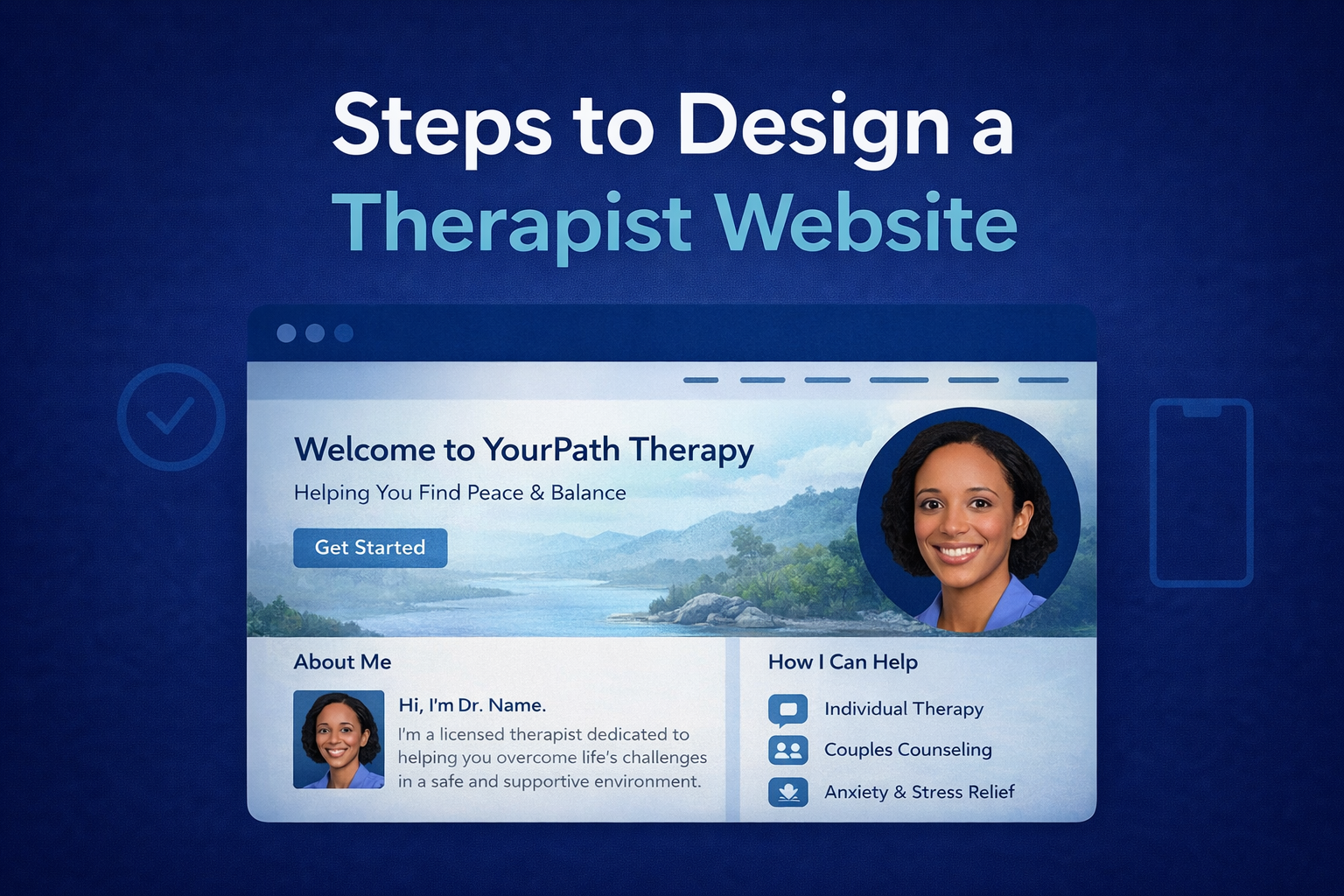For Licensed Clinical Social Workers (LCSWs), LCSW digital marketing is a powerful strategy to attract new clients, build trust, and grow their practice in a competitive mental health landscape. By leveraging tools like SEO, social media, and email marketing, LCSWs can connect with individuals, families, and communities seeking support. A strategic digital marketing approach enhances visibility and fosters meaningful client relationships. This comprehensive guide explores effective LCSW digital marketing strategies, key tools to implement, and actionable steps to expand your client base in 2025.
Why Digital Marketing is Essential for LCSWs
Digital marketing enables LCSWs to reach clients where they spend time—online. With most people searching for mental health services on Google or social media, a robust digital presence ensures your practice stands out. Here’s why LCSW digital marketing is critical:
Increasing Visibility
Digital marketing boosts your practice’s discoverability through search engines and social platforms, reaching clients actively seeking therapy. For insights on online visibility, visit SEO for Mental Health Therapists.
Building Trust
Sharing valuable content, such as therapy tips or anonymized success stories, positions you as a trusted expert, encouraging client inquiries. To learn about fostering trust, check out Mental Health UX/UI Design.
Engaging Local Communities
Targeted marketing strategies, like local SEO and social media ads, connect you with clients in your area, strengthening community ties. For practice growth strategies, explore Practice Growth for Therapists.
Key Digital Marketing Tools for LCSWs
To grow your client base, LCSWs should leverage a suite of digital marketing tools tailored to mental health professionals. The table below lists essential tools, their benefits, and external links to platforms for analytics or management (excluding competitors like TherapySites).
| Tool | Benefits for LCSWs | Platform Link |
|---|---|---|
| Google Analytics | Tracks website traffic and client behavior to optimize marketing efforts. | Google Analytics |
| Mailchimp | Manages HIPAA-compliant email campaigns to nurture client relationships. | Mailchimp |
| Hootsuite | Schedules social media posts to maintain a consistent online presence. | Hootsuite |
| Google Ads | Runs targeted local ads to attract clients searching for therapy services. | Google Ads |
Actionable Tip: Start with one or two tools to build familiarity before expanding your marketing stack.
Effective LCSW Digital Marketing Strategies
To attract and retain clients, LCSWs must implement a strategic, ethical, and client-focused digital marketing plan. Below are the most effective LCSW digital marketing strategies:
1. Optimize for Local SEO
Local SEO ensures your practice ranks higher for searches like “LCSW in [Your City].” Optimize your website and Google My Business profile with location-specific keywords, as discussed in SEO for Mental Health Therapists.
Actionable Tip: Encourage clients to leave Google reviews to boost local rankings.
SEO Tip: Include LCSW digital marketing in your website’s meta tags to attract search traffic.
2. Create Valuable Content
Blogging about mental health topics, such as stress management or family dynamics, attracts organic traffic and showcases expertise. Share content on social media to amplify reach, as recommended in Why Therapists Need a Blog.
Actionable Tip: Publish a monthly blog post like “5 Ways to Cope with Anxiety in [Your City].”
SEO Tip: Use LCSW digital marketing in blog titles and meta descriptions.
3. Leverage Social Media
Platforms like Instagram and Facebook are ideal for sharing therapy tips, anonymized testimonials, and local events. Use local hashtags (e.g., #ChicagoTherapy) to engage nearby audiences, as noted in Therapist Marketing Guide.
Actionable Tip: Post a weekly Instagram Reel with a quick mental health tip.
4. Run Targeted Ads
Google Ads and social media ads allow precise targeting of local demographics, driving traffic to your website or booking system. For lead generation tips, visit Lead Generation for LMFTs.
Actionable Tip: Start with a $20 monthly budget for local ads and monitor conversions.
5. Build an Email List
Email marketing nurtures relationships through newsletters and therapy resources. Offer a lead magnet, like a free stress management guide, to grow your list, as discussed in Why Therapists Need a Blog.
Actionable Tip: Aim to grow your list by 10–20 subscribers monthly using a lead magnet.
SEO Tip: Optimize your lead magnet landing page with LCSW digital marketing.
6. Ensure HIPAA Compliance
All marketing tools must protect client data. Use HIPAA-compliant platforms for emails, forms, and scheduling to maintain trust and avoid penalties, as outlined in HIPAA Compliance for Therapists.
Actionable Tip: Sign a Business Associate Agreement (BAA) with all marketing tool providers.
7. Track Performance with Analytics
Use tools like Google Analytics to monitor website traffic, ad conversions, and social media engagement. Adjust strategies based on data to maximize ROI, as noted in EHR Evolution in Mental Health.
Actionable Tip: Set up goals in Google Analytics to track client inquiries.
Benefits of LCSW Digital Marketing
Implementing LCSW digital marketing offers numerous advantages for growing your client base and enhancing your practice:
Increased Client Inquiries
Targeted SEO, ads, and social media drive more traffic to your website, converting visitors into clients. For lead generation strategies, visit Lead Generation for LMFTs.
Enhanced Local Visibility
Local SEO and ads ensure your practice appears for relevant searches, connecting you with nearby clients, as discussed in SEO for Mental Health Therapists.
Improved Client Trust
Valuable content and professional marketing materials position you as a credible LCSW, encouraging engagement, as noted in Mental Health UX/UI Design.
Cost-Effective Growth
Digital marketing is more affordable than traditional advertising, delivering long-term results with minimal ongoing costs, as highlighted in Therapist Marketing Guide.
Support for Teletherapy
Marketing promotes both in-person and virtual services, expanding your reach within your licensed state, as explored in The Rise of Teletherapy.
Common Digital Marketing Mistakes to Avoid
Even well-intentioned LCSWs can make mistakes in LCSW digital marketing that hinder growth. Here are common pitfalls and solutions:
1. Ignoring Local SEO
Failing to optimize for local searches limits visibility. Use location-specific keywords and update your Google My Business profile.
Solution: Add local keywords to your website and social media bios.
2. Overloading Content
Posting too frequently or using overly technical jargon alienates clients. Focus on clear, relatable content, as recommended in Why Therapists Need a Blog.
Solution: Post 2–3 times weekly with client-focused messages.
3. Neglecting HIPAA Compliance
Non-compliant tools risk data breaches and penalties. Always use secure platforms, as discussed in HIPAA Compliance for Therapists.
Solution: Verify encryption and sign a BAA with providers.
4. Not Tracking Results
Without analytics, you can’t measure success. Monitor traffic, engagement, and conversions to refine your strategy.
Solution: Review analytics monthly using tools from the table above.
5. Inconsistent Branding
Inconsistent visuals or messaging confuse clients. Maintain a cohesive brand across all platforms, as noted in Mental Health UX/UI Design.
Solution: Use consistent colors, fonts, and tone in all marketing materials.
How to Implement LCSW Digital Marketing
Ready to grow your client base with LCSW digital marketing? Follow these steps to build an effective strategy:
1. Define Your Target Audience
Identify your ideal clients (e.g., individuals with anxiety, families, or veterans) and tailor marketing to their needs.
2. Set SMART Goals
Create specific, measurable goals, such as “increase website traffic by 20% in six months” or “gain 50 email subscribers quarterly,” as suggested in EHR Evolution in Mental Health.
3. Build a Professional Website
Develop a mobile-responsive, SEO-optimized website with booking and teletherapy features. Ensure HIPAA compliance for trust and security.
4. Launch Marketing Campaigns
Use SEO, social media, ads, and email to promote your services. Schedule content with tools like Hootsuite for consistency.
5. Monitor and Refine
Track performance with analytics to identify high-performing strategies and adjust as needed, as discussed in Therapist Marketing Guide.
Actionable Tip: Start with one channel, like social media, and expand to others as you gain confidence.
The Future of LCSW Digital Marketing
Digital marketing is evolving with trends like AI-driven ad targeting, video content, and hyper-local campaigns. By mastering LCSW digital marketing now, you can stay ahead and meet client expectations, as explored in Future of Mental Health Therapy. A strategic, ethical approach will remain essential for growing your client base.
Conclusion
LCSW digital marketing empowers social workers to attract clients, build trust, and grow their practice through targeted, ethical strategies. By leveraging SEO, social media, email marketing, and HIPAA-compliant tools, you can connect with clients and enhance your impact. A well-executed digital marketing plan not only drives inquiries but also strengthens community ties. Ready to expand your LCSW client base? Contact Mental Health IT Solutions to implement tailored, HIPAA-compliant marketing solutions for your practice in 2025.







